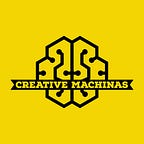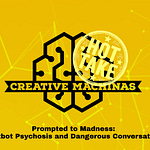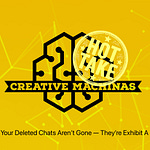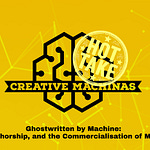‘Nobody wants a robot to read them a story!’ The creatives and academics rejecting AI – at work and at home
As AI tools like ChatGPT increasingly infiltrate creative and professional spaces, a growing wave of resistance is rising. From novelists and narrators to linguists and film-makers, a coalition of technophiles is drawing the line—refusing to let algorithms replace human intuition, artistry, or connection. They see generative AI not as liberation, but as hollowing: stripping stories of soul, replacing skill with shortcuts, and feeding a corporate dream of synthetic creativity. This compelling Guardian feature dives into their defiance, exploring the ethical, environmental, and emotional stakes of saying no to the machines. (via The Guardian)
Hot Take
AI isn't coming for the arts — it's already embedded in them. As creatives face a tidal shift, the conversation isn't just about tools. It's about values, power, and the deep unease of changing definitions.
A fierce divide is opening within the creative industries — not just over whether AI should be used, but over what its use reveals about the nature of creativity itself. The recent surge of generative AI tools has pushed some creators to declare their unwavering rejection of machine-assisted art. They frame their resistance in moral and aesthetic terms: that AI lacks soul, that it threatens jobs, that it diminishes our imaginative capacities. But underneath these claims lies a deeper, more uncomfortable truth: this backlash often operates as a defence of legacy systems of creative authority — systems in which gatekeeping was dressed up as meritocracy, and “authenticity” was defined by those already holding the mic.
What we’re witnessing isn’t the death of creativity. It’s its messy, painful, exhilarating evolution
Yes, the hype around AI is bloated, sometimes absurd, and often commercially driven. But even when we strip away the marketing polish and ignore the hyperbole about "superintelligence," we’re still left with tools that meaningfully shift how work gets done. Text is produced faster. Visual drafts iterate more quickly. Experiments are frictionless. That matters. And what unsettles many is that it matters *enough* to threaten long-standing hierarchies. Not because AI is better than human artistry, but because it redistributes access to it.
This tension is particularly acute in creative fields where identity is deeply entwined with labour. For many, their value as artists, writers, or designers is validated through the difficulty of the process — the long hours, the gatekeeper approvals, the scarcity of opportunity. AI throws a wrench into this model. When creation becomes easier, faster, or more accessible, some interpret it not as an expansion but a dilution. But that fear obscures the real opportunity: a chance to rethink authorship as a spectrum, collaboration as a norm, and expression as plural rather than singular.
Of course, there are dangers. The environmental impact of large models is a genuine concern. Similarly, this includes the exploitation of creative labour in training datasets. However, to focus solely on those risks while ignoring how AI is already being used, often silently, by the very people who decry it, is to engage in bad faith. The reality is that many creatives already utilise these tools to brainstorm, refine ideas, generate drafts, and overcome creative blocks. The difference lies in who’s willing to admit it.
At its heart, this debate isn’t really about AI. It’s about fear of redundancy, of shifting value systems, of no longer being special. And that’s understandable. However, as history has shown with photography, digital editing, and tools like Photoshop and Pro Tools, the creative world doesn’t collapse when new tools arrive. It transforms. Those who adapt don’t lose their voice — they find new registers to speak in.
What we’re witnessing isn’t the death of creativity. It’s its messy, painful, exhilarating evolution. And the real danger isn’t that AI will replace human art. It’s that we’ll waste years fighting the wrong battle, while the actual shape of our future is forged elsewhere, by those who choose to participate rather than protest.
Why It Matters
This debate cuts to the core of how creative industries will survive — or stall — in the face of rapid change. As AI tools quietly integrate themselves into everyday workflows, a refusal to engage becomes a form of strategic denial. The cost of that denial isn't just individual irrelevance; it's collective stagnation. Artists and creatives who cling to narrow definitions of authenticity risk excluding themselves from emerging ecosystems where creative labour is hybrid, iterative, and distributed. This is a paradigm shift, and pretending it's not happening doesn't make it go away. What’s needed is open conversation, ethical integration, and a redefinition of value, not a nostalgic retreat. Because in the end, creativity has never been static, and the culture that fails to evolve with its tools will find itself obsolete, not out of principle, but out of refusal.
» Listen to the Full Podcast Episode at the Top














